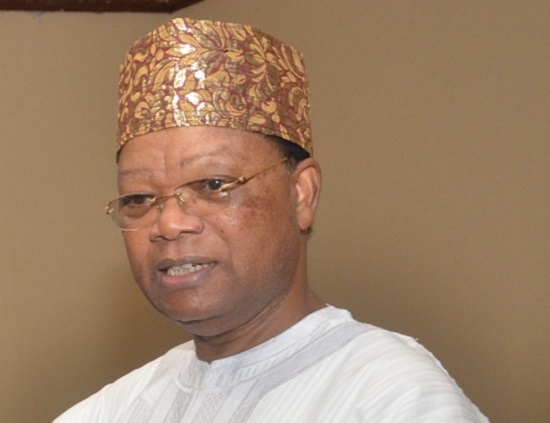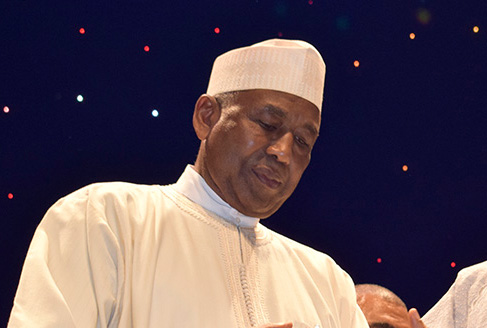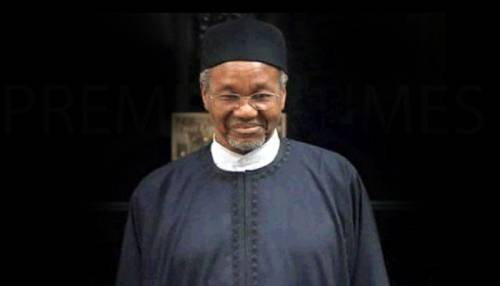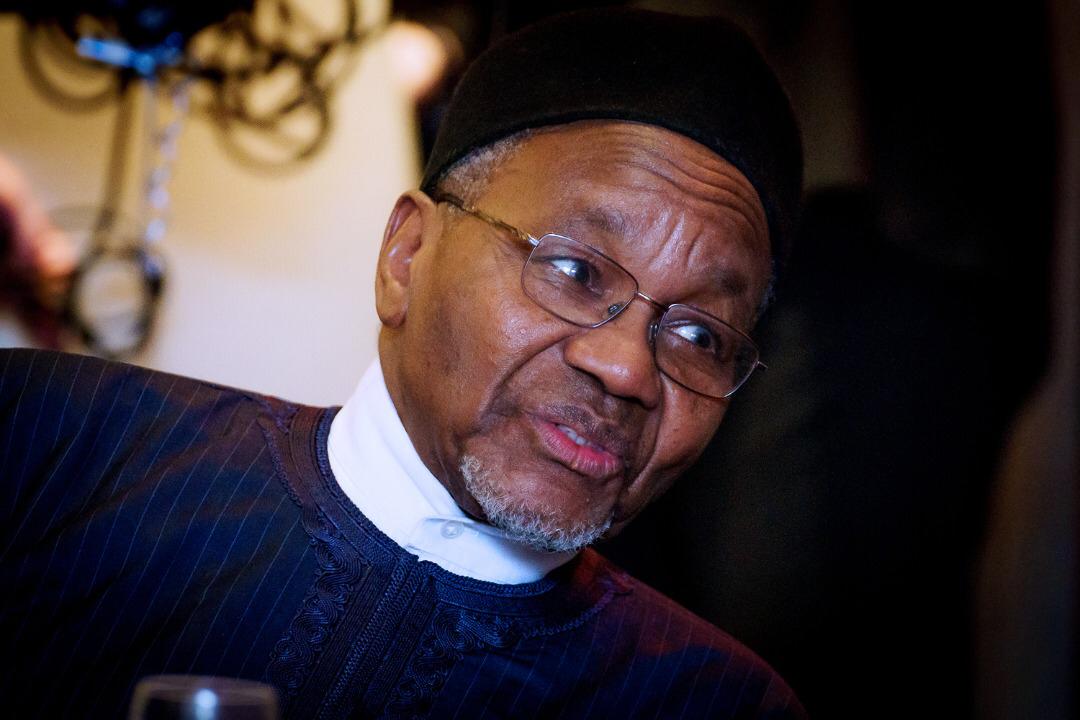BY CALIXTHUS OKORUWA
I was already seated somewhere towards the backrow at the hall in the Federal Palace Hotel, Lagos, waiting for the meeting to commence, when I saw him walking from the high table towards the rear of the hall. So I walked up to him and introduced myself, upon which he gracefully took my hand and ushered me to a seat on the front row. To my left and right was an intimidating array of top shots in Nigeria’s pharmaceutical sector – chief executives of blue-chip pharmaceutical companies, top civil servants, deans of pharmacy schools and the like. I was only a fresh-faced21-year-old final year student, at the quarterly meeting of the council of the Pharmaceutical Society of Nigeria in my capacity as president of Nigeria’s pharmacy students. But to Julius Adelusi-Adeluyi who had recently become president of the Pharmaceutical Society of Nigeria, mine was a very special position that needed to be accorded utmost importance.
Not very long afterwards, with the meeting now wellunderway, Adelusi-Adeluyi, signaled to me. “I’ll be calling on you next,” he whispered gently, apparentlyin order to avail me of some time to prep myself ahead of my presentation. “Next, I’d like to call on a gentleman who represents the future of our profession,” he soon announced. Of course, I had by then become very relaxed and confident and my presentation was near flawless.
The practice of incorporating students into the highest level of policy making in the profession was unique to pharmacists in Nigeria. Its objective was to seek the unique insights of students in policy formulation and implementation while at the same time enabling students better understand and appreciate and perhaps even internalize these policies before they graduate. In my experience at the council, whose meetings I had attended thrice before this one and with whose members I had interacted, no one appreciated this as much as Adelusi-Adeluyi. And in typical fashion, he strove to ensure that the council optimized the benefits of this innovation. The future of the profession was critical and it was today’s student who epitomized that future.
Advertisement
It wasn’t because he had been a student leader in his day. It was his person. A natural strategist, he has a great sense of perspective.
I veered off pharmacy many years ago and have for more than twenty years, practiced in the realm of communications management. When you discuss issues pertaining to public relations, marketing, branding and advertising with Adelusi-Adeluyi, you’re practically discussing with a peer in these areas. He is as much at home in these fields as he is with his primary profession of pharmacy. When he set up Juli Pharmacy in the early 1970s, he designed its logo himself, a logo that in its colour, simplicity and distinctiveness, ticks all the boxes of uniqueness that define great brand expressions. Even its tagline, “…the sign of service” is no less unique for its succinctness in capturing the essence of service which Juli Pharmacy continues to exemplify.
It isinstructive that wherever he has operated, Adelusi-Adeluyi has typically been set apart by his peers for leadership. As a student both at domestic and international levels, as an employee at Pfizer, at the Nigerian Stock Exchange, as a member of Rotary Club, as a participant at the Nigerian Institute of Policy and Strategic Studies and later its alumni association, even as a minister in government.
Advertisement
It is easy to recognize that he has an innatedisposition tobring people together, to break down boundaries, to foster better understanding and trust among people. And his leadership is enriched by the altruistic virtues he embodies. But beyond these, people can see that he combines his deep intellect with a super-human temperament and incredible humility. There is the X-factor as well. Impossible to describe, but which the gentleman appears to have in full measure: The charismatic ability to inspire followership.
At 80, Adelusi-Adeluyi has taken to studying Greek. He’s already very proficient in several languages that include Dutch, French, Spanish, Portuguese and even Latin, in addition to his native Yoruba, but this doesn’t matter to him. He’s as much a Philomath as he is a Polyglot.
He learnt how to fly planes many years ago and has a private pilot’s license. The story of his sojourn in the field of law, with his peerless performance at the Nigerian Law School in 1987, is now the stuff of legend.
He has been a television broadcaster, journalist and even music producer. He has been very active on the professional circuit: Institute of Directors, the chambers of commerce and many others.
Advertisement
When he turned 75 a few years ago, I recall over-hearing a phone conversation he had with a state governor who was planning to pay a visit to felicitate with him. “When you’re several houses away,” he implored the governor, “do me the favour of turning off your sirens.” He had no interest in drawing attention to himself by the caliber of his visitors, nor of disturbing the serenity of his neighbourhood.
You can feel his simplicity when he stretches out his hand to a 10-year old and engages him in a conversation, effortlessly committing the child’s name to memory. He doesn’t do it to patronize the child. He engages the child out of genuine love and interest.
You can experience his largeness of heart when he laughs away incidents and deliberately refuses to hold a grudge against anybody. Indeed, immensely witty, he’s not above poking fun at what he imagines, are his own shortcomings or failures.
Then you experience his godliness when he puts his own problems aside and takes upon himself, the problems of everyone else – at professional, social, and even personal levels. At 80, you wouldn’t hear him complain even of a headache. This is not because he doesn’t have headaches, but because he is more concerned with your own problems and helping you resolve them.
Advertisement
I have yet to meet a better listener. Whether presiding over a formal meeting or proffering counsel to a group of visiting politicians; whether playing host to a group of visiting students or a delegation of traditional rulers, Adelusi-Adeluyi is never carried away by his learning, exposure and experience. He never ceases to listen, thereafter crafting his well-articulated sagely counsel that have made him a much sought-after mentor and counselor.
A rumination of his life inevitably evokes thegreat “what ifs”. What if he had stuck to the arts and humanities for which he had a natural disposition and not gravitated to pharmacy in a country where scientific disciplines are under-appreciated and malnourished? Perhaps today, he may have been another of our Nobel laureates in Literature. What if he had been born in some other country, the United Statesfor instance? What a delight it would have been to see how the US would optimize his humongous intellect, skills and organizational ability. Perhaps he would have long earned for himself, a place in the Pantheon of America’s greatest presidents.
Advertisement
As he celebrates his 80th, one can only wish this multi-talented beacon of statesmanship, leadership and integrity, many more years of excellent health in service to humanity.And if the earlier “what if” questions are academic, the “when” question, certainly isn’t. When shall such a personality come the way of our country again? Or as William Shakespeare put it so succinctly in Julius Caesar,“whence comest such another?”
- Okoruwa works for XLR8, a communication company
Advertisement
Views expressed by contributors are strictly personal and not of TheCable.
Add a comment






